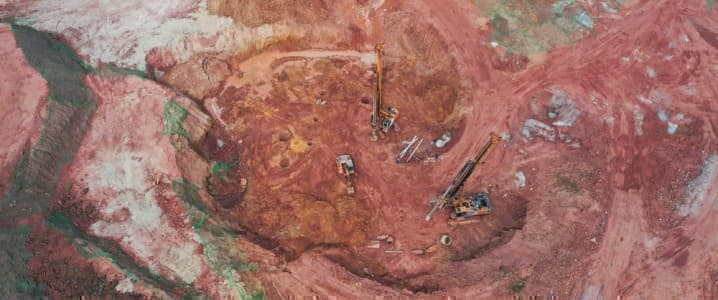According to its conflict minerals report (CMR) for 2023, Amazon cannot rule out having sourced minerals from nine of ten African countries where human rights-violating militias finance themselves through mining.
These countries are the Democratic Republic of the Congo, the Republic of the Congo, the Central African Republic, South Sudan, Uganda, Rwanda, Burundi, Tanzania, Zambia and Angola.
But, as Statista's Florian Zandt shows in the chart below, the other four members of GAMAM, a group synonymous with the moniker Big Tech, also potentially source some of the raw materials processed in contracted smelters from these regions.

You will find more infographics at Statista
Both Apple and Google’s parent company Alphabet reported that smelters integrated into their supply chains potentially processed minerals from six of the ten countries on the African continent mentioned above. Meta lists five of these countries in its report, while Microsoft claims to have reason to believe that minerals from two of the ten countries listed might end up in their products. However, the country list provided by Alphabet was last updated in 2021 and has been absent from their annual CMR since 2022. Additionally, Microsoft doesn't clarify if the countries listed in its report are merely those where smelters are located or if they are the source countries for potential conflict materials.
Contractors working for GAMAM companies are also active in extracting and processing raw materials in countries defined as CAHRAs, short for Conflict-Affected and High-Risk Areas. The extended CAHRA definition, which includes the extraction of minerals as well as other conflict resources, encompasses specific regions in Afghanistan, Mexico, Myanmar, and Yemen, among others.
According to Microsoft’s conflict minerals report, the company relies on "responsible sourcing" rather than restricting or avoiding the usage of the conflict minerals tantalum, tin, tungsten, and gold, known as 3TG, from these regions. Stopping operations in Covered Countries and CAHRAs would allegedly cause significant economic harm to the affected countries.
U.S. importers of raw materials have been required to disclose their sources for potential conflict minerals under the Dodd-Frank Act since 2010. A similar regulation has been in effect in the European Union since January 1, 2021, aimed at curbing the financing of violent militias, particularly in the Democratic Republic of Congo and surrounding countries, where said groups control the mining of tin and coltan. In the 1990s, the term "blood diamonds" gained significant attention in this context, referring to gemstones mined in Sierra Leone and Angola and sold by rebel groups to finance their operations.
By Zerohedge.com
ADVERTISEMENT
More Top Reads From Oilprice.com
- Natural Gas Becomes the Dominant Source of Electricity in the U.S.
- Trump's Trade Policies Threaten to Disrupt Global Energy Markets
- U.S. Power Plants Hold the Highest Coal Stock Levels Since 2020


















